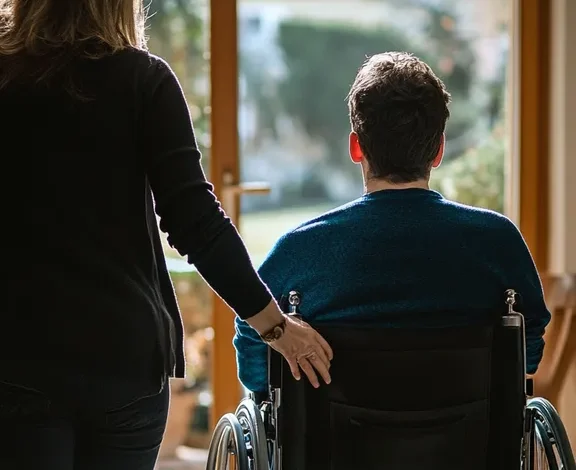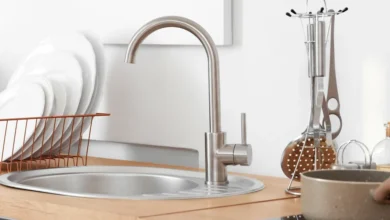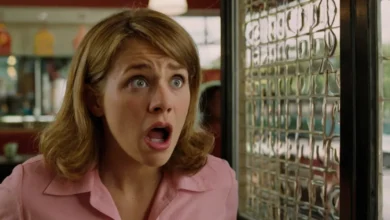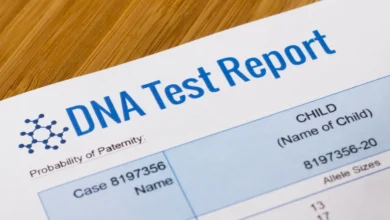15 Years After Graduation, I Came Face-to-Face with My School Bully and Had to Make a Hard Choice

I’ve spent my life proving I’m just like everyone else. As a physical therapist, I help people rebuild their strength and confidence, reminding them that their lives aren’t over just because something has changed. But when a new patient arrives, the past comes rushing back. The person who once made my life unbearable now needs my help.
I’ve always loved my job. It’s not just about physical recovery. It’s about rebuilding someone’s confidence, showing them that moving forward is possible even after an injury, a loss, or a drastic life change. Many of my patients come to me after devastating injuries, struggling to accept their new reality. Some are angry. Some are grieving. Some are too numb to feel anything at all.
I understood those feelings well. I had spent my whole life proving to others—and to myself—that I could move forward.
Since birth, I had been… incomplete. That’s the word they used to taunt me in school. I was born without legs, but I didn’t see it as an obstacle. The world did. Now, people admire me for my strength, my determination, calling me inspiring. But back then, it was different. Kids didn’t see strength when they looked at me. They saw someone who didn’t belong.
I didn’t like thinking about those years, but they shaped me. When a patient came to me, I saw myself in their struggle. We were all fighting battles, just in different ways.
That morning, as I went over my schedule, Nurse Nancy approached with that tense look on her face. I sighed, knowing what was coming.
“What now?” I asked.
She stopped short, blinking. “How do you always know?”
I crossed my arms. “You’ve been working here long enough that I can read your face like a book.”
Nancy sighed. “Brown had an emergency. You need to take his patient.”
I frowned. “Today?”
“Now,” she admitted.
I stared at her. “You’re joking.”
“I wish I was,” she muttered.
“Is he serious?”
“I don’t know,” she said, shifting nervously. “I’ll handle it. But you’re the one who needs to take the patient.”
I sighed. “Fine. At least give me the patient’s file.”
Nancy winced. “Brown forgot to leave it. His office is locked.”
“Of course it is,” I muttered. “So I know nothing about this person? No history, no injury details, nothing?”
“Pretty much,” she said, inching away.
“Perfect,” I muttered, rubbing my forehead.
I walked to reception. The room was empty, which only confirmed that something was off. No one had arrived for an appointment yet. I checked the clock. He should have been here.
Outside the glass doors, I spotted a man in a wheelchair, facing away from me. Something about his posture felt familiar. I stepped outside.
“Hi, I’m Monica, physical therapist. Are you here for an appointment?” I called out.
The man turned, and I froze.
His face. I knew that face.
“Monica?” he said, eyes widening. “I didn’t know you were a physical therapist. Listen, I have so much to—”
“Don’t,” I cut in, my chest tightening as old memories rushed in.
His voice, that familiar tone, triggered something deep inside me. I turned quickly, not wanting to feel anything. My prosthetics carried me toward the nearby park, my mind racing.
Suddenly, I was back in high school, a teenager again, struggling to prove that I was just like everyone else.
I did everything they did. I walked the same halls, took the same tests, laughed at the same jokes. But none of it mattered. They still saw me as different. And he—Brian—was the one who made sure I felt that difference every single day.
Brian was always there, lurking in the hallways, in the cafeteria, even in class. His words, more painful than any physical wound, always cut deep.
“What’s wrong, incomplete?” he’d shout across the hall, his voice full of mockery. “Need help getting to class?”
His smirk never changed, even as I forced myself to keep my head high. I could feel the sting of his words, but I kept walking, pretending they didn’t matter.
“Except mine aren’t fake,” Brian would sneer, turning to his friends with a laugh, making sure I felt smaller than ever.
I was alone. He made sure of it. No one sat with me at lunch. No one talked to me. I spent most of my time hiding in the library, away from the cruel laughter and whispers.
When prom came, I stayed home. I wanted to forget all of them.
After high school, things got better. I changed. I grew stronger. I learned to be proud of who I was. But Brian? I never thought I’d see him again.
Yet, there he was, in front of me, rolling his wheelchair toward me, looking smaller, vulnerable. It had been fifteen years since I last saw him, at our high school graduation.
Brian stopped in front of me, his eyes not meeting mine. His hands were gripping the wheelchair’s wheels tightly, his shoulders tense, like he was bracing for something.
“I guess this is surprising for you,” he said quietly.
“Surprising?” I repeated, folding my arms. “You’re the one person I hoped I’d never see again.”
Brian nodded, staring at the ground. “I get that. I wasn’t exactly a good person in school.”
“Putting it mildly,” I said, my voice cold. “What happened?”
“Car accident,” he said, his voice flat. “I fell asleep at the wheel. Crashed into a tree. Doctors say I may never walk again.”
I felt a flicker of something, but I couldn’t decide what it was. Was it pity? Was it justice? Was it sympathy?
“So there’s still hope,” I said, my voice softening. “Maybe you won’t be… incomplete.”
Brian’s head snapped up at that, his eyes wide.
He paused, then spoke again, almost cautiously. “I’m sorry, Monica. I was a complete jerk. I thought about you a lot after the accident. I even tried to reach out, but I saw I was blocked. I kept thinking about how awful I was to you.”
I wanted to walk away. I wanted to refuse him. Let someone else deal with him.
But instead, I sighed, my chest tight with years of unspoken words. “I am angry. I have been for years. But I won’t refuse your treatment.”
Brian looked at me, eyes full of regret. “Thank you,” he said, his voice breaking. “I don’t know if I could have been as forgiving if our roles were reversed.”
I met his gaze. “I know,” I said softly. “But I’m not like you. I’m not out for revenge. I just want to help.”
For a long moment, Brian didn’t speak, but he nodded slowly, wiping a tear away.
“I hope you can forgive me one day,” he said.
“I already have,” I whispered.
“Shall we start your therapy?” I asked, offering a small smile.
Brian let out a breath, nodding. “Yeah. Let’s.”
We turned toward the building, and I couldn’t help but feel like this was the beginning of a different kind of healing. For both of us.



